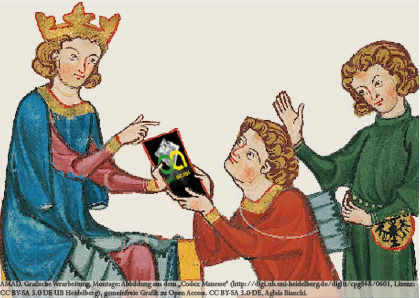AMAD
"Archivum Medii Aevi Digitale - Specialized open access repository for research in the middle ages"To submission

| Title: | c ○ Peter King, in Medieval Formal Logic (Kluwer 2001), 117–145 CONSEQUENCE AS INFERENCE Mediæval Proof Theory 1300–1350 |
| Contributor: | The Pennsylvania State University CiteSeerX Archives |
| Description: | The first half of the fourteenth century saw a remarkable flowering in accounts of consequences (consequentiae). Logicians began to write independent treatises on consequences, the most well-known being those by Walter Burleigh (De consequentiis) and Jean Buridan (Tractatus de consequentiis). Consequences also came to be treated systematically in comprehensive works on logic, such as those of Walter Burleigh (both versions of the De puritate artis logicae), William of Ockham (Summa logicae), and, to a lesser extent, Jean Buridan (Summulae de dialectica)—as well as in works written in their wake. 1 The philosophical achievement realized in these various writings was no less than a formulation of a theory of inference: the rules for consequences given by these mediæval authors spell out a natural deduction system in the sense of Jaskowski and Gentzen. 2 1 All translations are mine. I what follows I cite the Latin text only when it is not readily available (e.g. for much of Buridan’s Summulae de dialectica), when there is a textual difficulty, or when a point depends on its original phrasing. The texts on |
| URI: | https://www.amad.org/jspui/handle/123456789/60866 |
| Other Identifier: | http://citeseerx.ist.psu.edu/viewdoc/summary?doi=10.1.1.88.5704 http://individual.utoronto.ca/pking/articles/Consequence_as_Inference.pdf |
| AMAD ID: | 568467 |
| Appears in Collections: | BASE (Bielefeld Academic Search Engine) General history of Europe |

